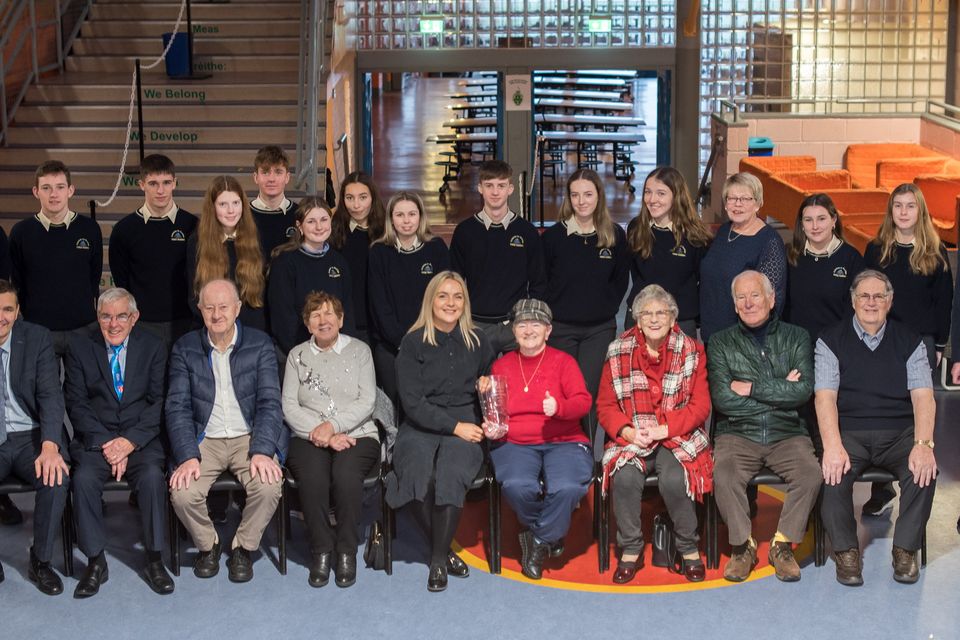Programme: Kerry
WHO Theme: Communication and Information
Cost: 10000+
Status: Completed
Description
There is considerable research showing disadvantages experienced by older people, including loneliness and isolation, which negatively impacts on their well-being. Morevover, social isolation is problematic to address and has been compounded during this recent pandemic.
The proposal is based on a detailed problem analysis undertaken as part of the KDYS sponsored University of Limerick’s Executive Leadership Programme with community based stakeholders. The problem analysis specifically identifies engagement with IT devices as a means to reduce loneliness, particularly where the engagement is two-way (e.g. with a friend). Our problem analysis identifies two pathways to connectivity which our proposal deals with holistically. The first path refers to hard barriers such as internet connectivity and availability of devices; where cost may be a considerable issue. The second pathway is softer but in no way less significant; knowledge, skills and attitudes toward IT by older people. Critically, we also identified a further, often overlooked soft barrier: the ability to problem solve and trouble shoot day-to-day IT scenarios that older people will encounter. In order to build capacity and motivation in older people to engage with IT, these problems need to be addressed in a patient and respectful manner.
Outcomes for the Community:
To this end, we outlined a programme whereby younger people support and train older people to use IT with age friendly devices, creating a new opportunity for greater connectivity in the community.
Enhanced digital connectivity for older people will contribute to counteracting the negative effects of rural isolation and result in better access to information & services. The crucial ongoing IT support element will be a sustainable cornerstone of this project. Potential for all young people, including those deemed at risk of negative impacts of disadvantage & marginalisation, to benefit from pro-social & cross-generational activities. Upon successful completion of the pilot phase, in UL will review and document the programme so that the learning can be implemented to a wider range of communities experiencing similar difficulties. Initial pilot phase of 14 Young People, supported by KDYS youth worker and their teacher Miss Murphy delivering IT training to 12 Older People.
Every Tuesday from 11:15 to 12:30 the group met in a Colaiste Na sceilge – where the training took place learning how to access the internet, get apps onto their Home Screen, and use things such as the calculator!
It was the relationships that formed among the group that really were applaudable – often I the teacher was almost irrelevant to the program itself once the bond and overall community was formed.
Aim of Initiative
The overall aim of the initiative was the help narrow the gap in IT isolation amount our community all the while trying to form Intergenerational relationships amongst students and elderly members of our community. This aim was well and truly met – learning was twofold often it was the students learning from the buddy they were paired with. It really was a special community that was formed! The smiles and laughs that filled the room every Tuesday was infectious! Different members of staff and management often joined in on the conversation and cups of tea.
Who is it aimed at
Young people – best worked with transition years and elderly members of the community alike.
3 Steps critical to success
- Making contact with the different groups involved. First of all the KYDS provided up with the tablets that were an essential element to the program! Without these the program would not have worked. The KDYS, the men’s shed, Cahersiveen social services, HSE, UL to get the program up and started. It was essential that all parties were aware of their role within the program.
- Organising a time and venue that suited everyone. The venue had to be accessible to the members of the public entering the school and also had to be free to use for the 1.5 hours whilst the program was taking place.
- Having a clear and concise plan of action for the 4 weeks of the program. It was essential to know what we were going to be doing during each session in order for it to be successful.
3 Challenges in Planning / Delivery
- Timing – as already mentioned the relationships formed were excellent often to my detriment – students and their buddy’s were more than happy to talk and talk and often leaving little time for the task at hand! However the relationships were just as important as the I.T work.
- Samsung tablets might not have been the most user friendly for the group involved. Many members of the group had IPADS and found them much easier to use.
- Duration – 4 weeks was quite short going forward I definitely think it might be something that I would like to host for an 8 week term to get the most out of the program
3 Outcomes / Benefits
- The relationships that were from were absolutely amazing! So much so that members of the group attended the graduation of our transition year group this year! The students were absolutely thrilled in getting a picture with them all. This was one aim that was well and truly met and surpassed.
- To help the older generation to be able to use the Samsung tablets with ease – it was clear to see that each member of the group was willing and able to use the tablets for the different things they could see themselves using them for. All members wants were different and this addressed by their buddy and all had ease in doing exactly what they wanted to do with the tablets on completion of the course.
- That no two students none members for the public has the same prior knowledge. Therefore pairing up groups was quite difficult at the start but it was great in the sense that learning was taking place in each and every group.
Contact:
Email:

